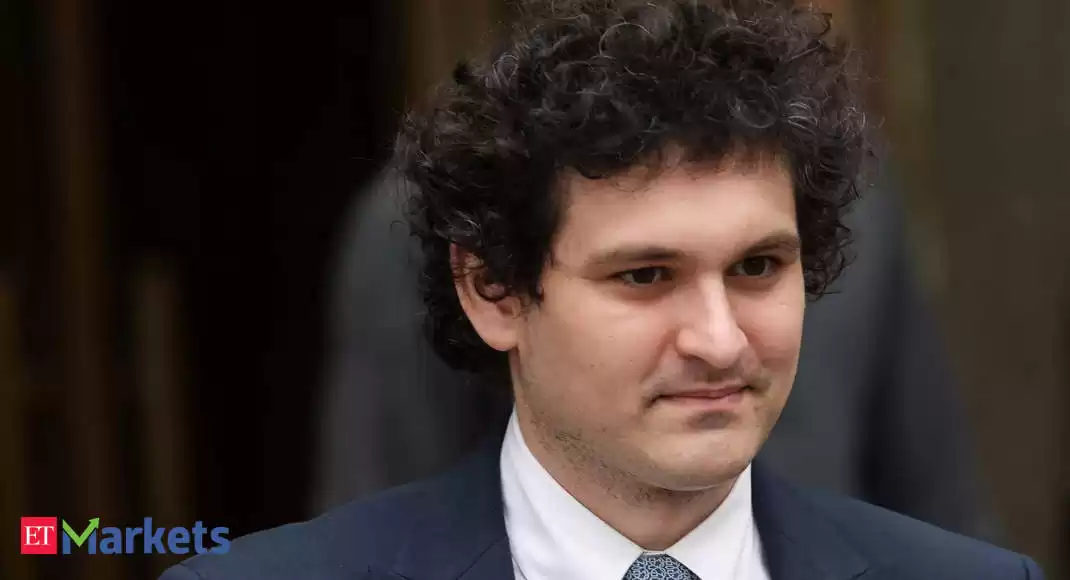FTX Founder Sam Bankman-Fried Jailed as Judge Alleges Crypto Mogul's Witness Tampering
FTX founder Sam Bankman-Fried was taken into custody after a judge revoked his bail for attempting to influence witnesses.
FTX founder Sam Bankman-Fried experienced a dramatic turn of events as he left a federal courtroom in handcuffs. The judge had revoked his bail after determining that Bankman-Fried had repeatedly attempted to influence witnesses against him. Judge Lewis A. Kaplan explained his decision, stating that the defendant had pushed the boundaries of his bail package to a point where the protection of the community, including prosecutors' witnesses, could no longer be ensured unless Bankman-Fried was behind bars.
Following the conclusion of the hearing, Bankman-Fried removed his suit jacket and tie, surrendering his watch and personal belongings to his lawyers. The sound of handcuffs clanging could be heard as his hands were cuffed in front of him. U.S. marshals then led him out of the courtroom.
This downfall was particularly stunning considering Bankman-Fried's previous portrayal of himself as a "savior of the cryptocurrency industry." He had testified before Congress and enlisted celebrities such as Larry David, Tom Brady, and Stephen Curry to promote his businesses. However, prosecutors alleged that Bankman-Fried had stolen billions of dollars in FTX customer deposits for various purposes, including funding his businesses, speculative investments, illegal campaign donations, and attempts to influence cryptocurrency regulation in Washington.
Judge Kaplan found probable cause to believe that Bankman-Fried had attempted to tamper with witnesses on multiple occasions. This included showing a journalist the private writings of a former girlfriend and key witness against him, as well as reaching out to FTX's general counsel with encrypted communication. The judge expressed concern that Bankman-Fried had likely tried to influence other witnesses as well, potentially compromising their cooperation with the government.
Consequently, the judge issued an incarceration order, citing probable cause to believe that Bankman-Fried had committed the federal crime of attempted witness tampering. Bankman-Fried's lawyers argued that their client's motives were innocent, asserting that he was merely trying to protect his reputation from negative news stories. They requested a suspension of the incarceration order for an immediate appeal, but the judge denied their request. Bankman-Fried was then sent to the Metropolitan Detention Center in Brooklyn for the night.
Bankman-Fried had previously been under house arrest at his parents' home in Palo Alto, California, following his extradition from the Bahamas. He faced charges of defrauding investors in his businesses and diverting millions of dollars' worth of cryptocurrency from customers using his FTX exchange. His bail package had imposed strict restrictions on his internet and phone usage, which he seemingly violated by reaching out to FTX's general counsel.
Judge Kaplan dismissed defense claims that the communication was harmless, interpreting it as an invitation for the general counsel to align their recollections with Bankman-Fried's. Prosecutors had previously demanded Bankman-Fried's incarceration after he showed The New York Times private writings of his former girlfriend, Caroline Ellison. They argued that he was attempting to tarnish her reputation and influence potential jurors for his upcoming trial.
The judge agreed with the prosecutors, stating that the shared excerpts were unlikely to be disclosed unless the intention was to harm, discredit, and intimidate Ellison. Ellison herself had pleaded guilty to criminal charges and agreed to testify against Bankman-Fried as part of a plea deal. Bankman-Fried's lawyers contended that he had failed in his attempt to defend his reputation, as the article actually portrayed Ellison sympathetically. They accused the prosecutors of presenting evidence based on speculation and innuendo.
Throughout this process, Judge Kaplan had imposed a gag order to prevent public comments from trial participants, including Bankman-Fried. However, The New York Times raised concerns about the implications for the First Amendment and the public's interest in Ellison and her cryptocurrency trading firm. The Times argued that providing timely and fair information about Ellison was essential, given her central role in a scheme defrauding investors of billions of dollars.
As Bankman-Fried begins his incarceration, the legal battle surrounding his alleged crimes and attempts to influence witnesses continues. The outcome of his upcoming trial will determine the consequences he will face for his actions.











Comments on FTX Founder Sam Bankman-Fried Jailed as Judge Alleges Crypto Mogul's Witness Tampering